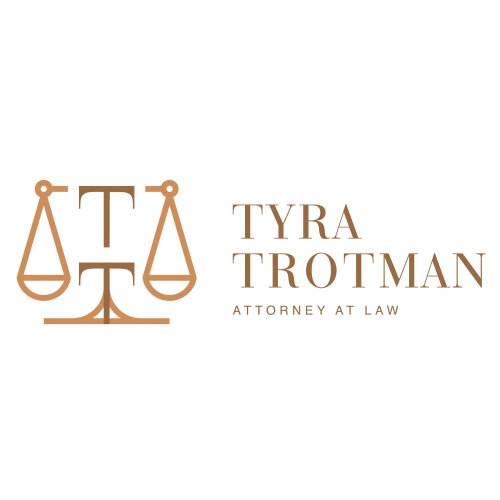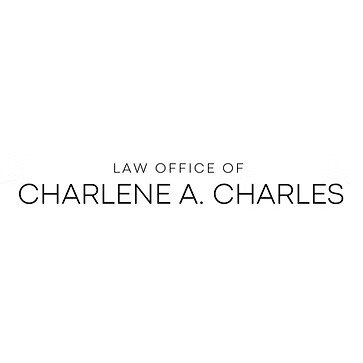Best Toxic Tort Lawyers in Barbados
Share your needs with us, get contacted by law firms.
Free. Takes 2 min.
Or refine your search by selecting a city:
List of the best lawyers in Barbados
About Toxic Tort Law in Barbados
Toxic tort law in Barbados pertains to legal issues involving harm caused by exposure to toxic substances. This can include cases related to contaminated water, air pollution, hazardous waste, and more. Those who have suffered injuries or illnesses due to toxic exposure may be entitled to seek compensation through legal action.
Why You May Need a Lawyer
You may need a lawyer in toxic tort cases if you have been exposed to harmful substances and suffered adverse health effects as a result. A lawyer can help you navigate the legal complexities of proving liability, gathering evidence, and seeking compensation for your damages. Additionally, toxic tort cases often involve multiple parties, such as manufacturers, employers, or property owners, making legal representation crucial in protecting your rights.
Local Laws Overview
In Barbados, toxic tort cases are governed by various laws and regulations, including the Environmental Protection Act and the Occupational Safety and Health Act. These laws establish guidelines for handling hazardous substances, ensuring workplace safety, and protecting public health. It is important to consult with a lawyer familiar with local laws to understand your rights and options in toxic tort cases.
Frequently Asked Questions
Q: What qualifies as a toxic tort case in Barbados?
A: A toxic tort case in Barbados involves harm caused by exposure to toxic substances, such as chemicals, pollutants, or other hazardous materials.
Q: Who can be held liable in a toxic tort case?
A: Parties that may be held liable in a toxic tort case include manufacturers, employers, property owners, and other entities responsible for the release or exposure to toxic substances.
Q: What compensation can I seek in a toxic tort case?
A: Compensation in a toxic tort case may include medical expenses, lost wages, pain and suffering, and punitive damages for negligence or misconduct.
Q: How can I prove liability in a toxic tort case?
A: Liability in a toxic tort case can be proven through evidence such as medical records, expert testimony, environmental testing, and documentation of the exposure and resulting harm.
Q: What is the statute of limitations for filing a toxic tort claim in Barbados?
A: The statute of limitations for toxic tort claims in Barbados may vary, so it is important to consult with a lawyer promptly to ensure your claim is filed within the necessary time frame.
Q: Can I file a toxic tort claim on behalf of a loved one who has been harmed?
A: In some cases, family members or legal representatives may be able to file a toxic tort claim on behalf of a loved one who has been harmed by toxic exposure, such as in cases of wrongful death or incapacitation.
Q: Are there alternative dispute resolution options for toxic tort cases in Barbados?
A: Alternative dispute resolution options, such as mediation or arbitration, may be available for resolving toxic tort cases outside of court, depending on the circumstances and the parties involved.
Q: What role does insurance play in toxic tort cases?
A: Insurance coverage, such as liability insurance or environmental insurance, may play a significant role in toxic tort cases by providing compensation for damages, legal defense, and coverage for settlements or judgments.
Q: How can I find a qualified toxic tort lawyer in Barbados?
A: To find a qualified toxic tort lawyer in Barbados, you can seek referrals from trusted sources, research online, or contact local bar associations for recommendations. It is important to choose a lawyer with experience in toxic tort cases and a track record of success in similar matters.
Q: What are the potential challenges of pursuing a toxic tort case in Barbados?
A: Challenges of pursuing a toxic tort case in Barbados may include complex legal issues, proving causation and liability, facing well-funded opponents, and navigating the court system. A skilled lawyer can help you overcome these challenges and advocate for your rights effectively.
Additional Resources
For additional resources related to toxic tort cases in Barbados, you can contact the Barbados Bar Association, the Environmental Protection Department, or local environmental advocacy groups for guidance and support.
Next Steps
If you believe you have a potential toxic tort case in Barbados, it is crucial to seek legal advice from a qualified lawyer as soon as possible. A lawyer can evaluate your case, explain your rights, and guide you through the legal process to seek justice and compensation for your injuries or losses.
Lawzana helps you find the best lawyers and law firms in Barbados through a curated and pre-screened list of qualified legal professionals. Our platform offers rankings and detailed profiles of attorneys and law firms, allowing you to compare based on practice areas, including Toxic Tort, experience, and client feedback.
Each profile includes a description of the firm's areas of practice, client reviews, team members and partners, year of establishment, spoken languages, office locations, contact information, social media presence, and any published articles or resources. Most firms on our platform speak English and are experienced in both local and international legal matters.
Get a quote from top-rated law firms in Barbados — quickly, securely, and without unnecessary hassle.
Disclaimer:
The information provided on this page is for general informational purposes only and does not constitute legal advice. While we strive to ensure the accuracy and relevance of the content, legal information may change over time, and interpretations of the law can vary. You should always consult with a qualified legal professional for advice specific to your situation.
We disclaim all liability for actions taken or not taken based on the content of this page. If you believe any information is incorrect or outdated, please contact us, and we will review and update it where appropriate.
Browse toxic tort law firms by city in Barbados
Refine your search by selecting a city.










